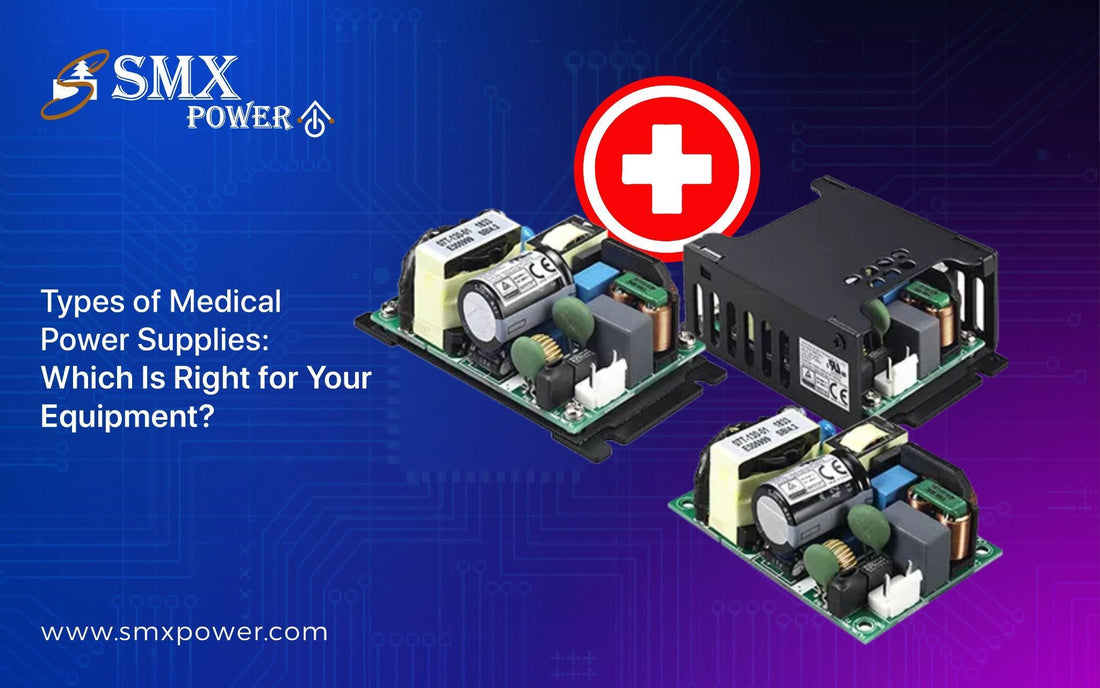Medical devices play a vital role in providing the best treatment to patients. However, these devices need power supplies to generate conditioned output. Power supply products are designed to meet safety standards for electrically operated medical equipment. But, which power supplies should you use for your medical devices? The best medical-grade power supplies need longer design cycles and have a longer lifespan.
AC-DC power converters
AC-DC power supplies are electronic circuits intended to convert AC power into DC for your medical equipment. The converters provide a reliable and steady delivery of DC power that ensures the smooth functioning of medical devices.
AC-DC power converters are compact, lightweight, and easily installable. Higher energy-saving capacity has made them a perfect choice for medical and industrial equipment.
These power converters have several medical applications, such as
- Diagnostic tools
- Home patient care
- Dental equipment
- Lab equipment
- Monitoring tools
DC/DC power converters
Some power supplies convert one DC voltage level into a different level. The most significant advantage of choosing a DC/DC converter is that it ensures better protection for the equipment and the patient. When a medical device fails, it causes the worst scenario. If not properly isolated, the operator or patient may experience burns and electrocution. Although the connections to the user should be separated from the ground, your DC/DC converter adds an extra isolation level. This power supply product easily manages low-leakage current.
Most AC/DC converters for medical devices on the market are costly. So, the best idea is to combine DC/DC and AC/DC converters for an affordable option.
Medically-approved DC-DC power converters supply power only to the components accessible to the operator and patient.
The most common applications of DC/DC converters are-
- Portable ECG machines
- Ventilators
- Battery-operated medical equipment
Linear power converters-
Linear power converters receive AC inputs and supply multiple DC outputs for different industrial and medical applications. They have an active element that operates in its linear part to produce the voltage. The dropping excess power of the input regulates the output voltage. Linear power converters provide good regulation and minimal output noise.
You can choose linear power supplies for diagnostic devices, such as X-ray systems and ultrasound machines. As electrical noise may affect the performance of sensitive diagnostic devices, these power supplies are the best choice.
Switching power supplies
Switch-mode power supplies have a regulator or switching element to produce the desired voltage. Electronic components in these power supply devices continuously turn on and off the switch at a high frequency. The switching process disconnects and connects energy-storage devices. Medical equipment with a switch-mode power supply consumes less power.
The common healthcare devices that have switching power supplies are-
- Diagnostic device
- Heart-lung machines
- Blood analyzer
- X-ray
- Multi-parameter monitor
Medical power supplies with digital control technologies
The modern medical power supplies are equipped with digital control technologies. Analog circuits are replaced with microcontroller-based solutions. It reduces the circuit complexity and the number of parts. Some power supply products have full digital control and ensure a high peak power rating. So, they are a smaller yet more efficient device for your medical equipment.
How to choose the right power supply for your healthcare equipment?
While buying medical-grade power supplies, you should focus on a few factors-
Safety standards
The power supply products used for medical electrical equipment should meet the safety standards. There must be separate insulation barriers, which prevent electric shock.
Patient-friendly
Even if your power supply has met isolation and leakage-current standards, the overall system should be compatible with the patient's environment. The device must have a thermal management system, such as convection and fan-cooled technologies. It will work consistently without overheating the environment.
Durability and reliability
Assess the build quality of your power supplies. A well-designed power supply ensures a longer lifespan and high reliability of your medical device. So, choose power supplies designed with quality components. Standard protection features safeguard the device if there is a malfunction.
Conclusion
You can now choose the right power supplies for your healthcare devices. Check the innovative features and safety technologies used for the power converters. Power supplies are essential to most medical devices, from dental to ophthalmic.
At SMX Power we offer a wide range of medical power supplies for your specific needs. Contact us today to learn more and find the perfect fit for your power supply requirements.

